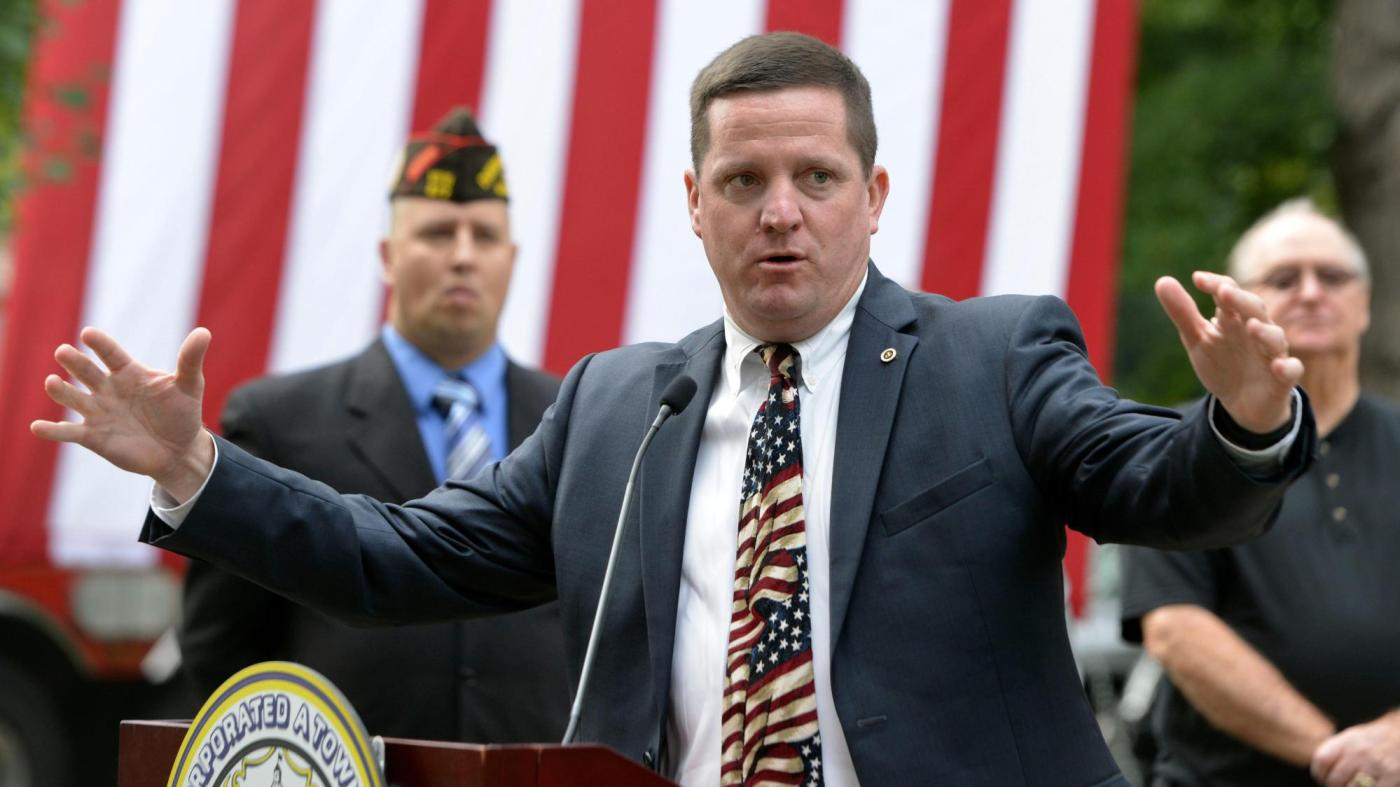
Holyoke Soldiers’ Home ex-superintendent pleads guilty to neglect
The former superintendent of the Holyoke Soldiers Home, where at least 76 veterans died in the early days of the COVID-19 pandemic, has pleaded guilty to five charges of neglect but will serve no prison time.
Judge Edward McDonough, Jr., accepted the guilty plea of Bennett Walsh to five counts of neglect of an elder related to Walsh’s decision to combine multiple dementia care units into one in March 2020, which in turn led to the deaths of numerous residents who had not been exposed to the virus before the change.
McDonough ordered the case be continued for three months without a finding and ordered Walsh to comply with probationary conditions including that Walsh not contact the victims’ families or work in a medical field. McDonough did not impose probation itself. This finding was identical to the defense’s recommendation.
The prosecution recommended that Walsh serve three years of probation with the first year under home confinement. The prosecutor said the recommendation for only probation and not any prison was made because Walsh had a clean criminal record. The maximum penalty for each count was three years in state prison.
Over the course of the roughly hour-long hearing in Hampshire Superior Court in Northampton, the prosecution and the defense painted different pictures of the crisis at the Soldiers Home.
The prosecutor said that the conditions of the consolidated dementia care unit “were quite bad” and had been described variously by those who witnessed it as “a war zone,” “a battlefield,” and “the worst I have ever seen.”
The prosecutor described the consolidated unit as overly ad hoc, and that dementia care patients were seen wandering around naked, or nearly so, and crammed so tightly that there were double the allowed number of people per room.
When the unit was first created, the prosecutor argued, five of nine residents who were assigned to live in the dining room were asymptomatic for COVID19, but the cramped conditions and lack of medical care caused them to come down with the fatal virus.
Walsh said during his change of plea that he accepted there were sufficient facts to convict him of neglect, but that he does “not admit that such a decision was wanton and reckless in light of the situation.”
Walsh and his attorney said that Walsh, a career military man, had assessed the dire staffing shortage in light of the current guidance coming from state and federal leaders in those confused, early days of COVID.
Walsh’s attorney said that in the weeks leading up to the crisis at the Soldiers Home, the flu had been bad in Massachusetts but the state had only seen one confirmed case of COVID-19. He said that leaders sent out an email basically saying that, “Yes, it is very contagious but it is also not a danger to the majority of people who catch it.”
This is a developing story.


